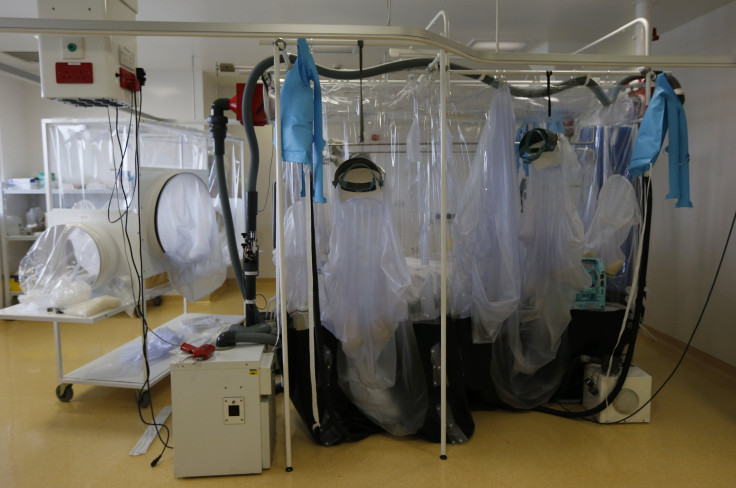First British Ebola Patient, William Pooley, Flown To London For Treatment; Officials Try To Obtain Dose Of ZMapp

William Pooley, 29, the first confirmed British Ebola victim, was flown to England for treatment this weekend, arriving in London on Sunday. Pooley worked as a volunteer caring for Ebola patients in Sierra Leone when he contracted the virus. Although it was reported that supplies of the experimental Ebola treatment ZMapp have run out, the UK Department of Health is working to obtain any remaining doses.
Pooley is being treated at a specialist isolation unit at London’s Royal Free Hospital. The hospital is the only treatment center in Europe designed to treat patients with “highly infectious disease,” the BBC reported. According to Professor Jonathan Ball, a virologist at Nottingham University, “He really is in the best place and will have the best possible care.” Pooley is currently being tested to ensure that no major damage has been done to his vital organs. Without any proven cure for the virus, doctors will only be able to treat Pooley’s symptoms of dehydration.
At the moment, ZMapp is not believed to be a part of Pooley’s treatment, but according to the BBC, “those treating Pooley have not ruled out the use of monoclonal antibody therapies, such as ZMapp.” Recently, six Ebola patients made international headlines with their ZMapp treatment. Of these, two American patients are completely healed, a Liberian doctor and Spanish priest have died, and two more doctors — one from Liberia, the other from Nigeria — are continuing to be treated.
However, the BBC did add that they have received reports that three unnamed Liberian medical staff workers treated with ZMapp are now also showing signs of improvement. “Frankly, we do not know whether [ZMapp] helped them, whether it made no difference, or, theoretically, whether it delayed their recovery,” explained Dr. Bruce Ribner, the doctor who treated American Ebola patients Dr. Kent Brantly and Nancy Writebol, at a press conference last Thursday when asked about ZMapp’s effectiveness.
The Centers for Disease Control and Prevention describes ZMapp as a “combination of three different monoclonal antibodies, which together bind to the Ebola virus’s protein. It is not the only experimental Ebola treatment available at the moment. Avigan, also known as T-705, is a Japanese anti-viral developed for influenza treatment but also believed to be effective at treating Ebola, the BBC reported. Although Avigan’s effectiveness is also unknown, it was reported that Japan is currently sending out shipments of the experimental drug to help with the Ebola outbreak relief.



























